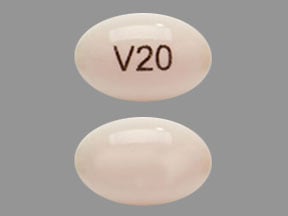
Claravis Coupons & Savings Card – Discount Prices from $50.93
Brand for: Isotretinoin
My prescription
Edit
20MG, Isotretinoin (30 Capsules)
Select pharmacy

CVS
$50.93
COUPON PRICE
Albertsons
$69.72
COUPON PRICE
Walgreens
$87.90
COUPON PRICE
Walmart
$89.23
COUPON PRICEClaravis savings card
Show this card to your pharmacist
CVS
$50.93
BIN
ID
PCN
GRP
019876
LHD5251964
CHIPPO
LHX
Powered by
More prescriptions for acne
More prescriptions for acne
Price history for Claravis (brand) & Isotretinoin (generic)
30 Capsules, 20MG
Average retail price for Claravis
Average retail price for Isotretinoin
Average SaveHealth price for Isotretinoin
Our price history data is based on aggregated prescription data collected from participating pharmacies in America. Our prescription data updates daily to reflect the latest price changes. If you notice a missing data point, it means there wasn't sufficient data available to generate a monetary value for that date.
Over the last 12 months, the average discount price of Claravis is $72.80 using the SaveHealth savings card. That's an average savings of 90.18% on Claravis with our discount card.
*Retail prices are based on pharmacy claims data, and may not be accurate when we don't have enough claims.
Claravis (Isotretinoin) dosage forms
Dosage Quantity Price from Per unit 10MG 10 Capsules $22.21 $2.22 10MG 30 Capsules $54.17 $1.81 20MG 30 Capsules $50.93 $1.70 20MG 10 Capsules $29.18 $2.92 30MG 10 Capsules $29.18 $2.92 30MG 30 Capsules $50.93 $1.70 30MG 60 Capsules $83.57 $1.39 40MG 10 Capsules $29.13 $2.91 40MG 30 Capsules $50.93 $1.70 40MG 60 Capsules $83.57 $1.39
| Dosage | Quantity | Price from | Per unit |
|---|---|---|---|
| 10MG | 10 Capsules | $22.21 | $2.22 |
| 10MG | 30 Capsules | $54.17 | $1.81 |
| 20MG | 30 Capsules | $50.93 | $1.70 |
| 20MG | 10 Capsules | $29.18 | $2.92 |
| 30MG | 10 Capsules | $29.18 | $2.92 |
| 30MG | 30 Capsules | $50.93 | $1.70 |
| 30MG | 60 Capsules | $83.57 | $1.39 |
| 40MG | 10 Capsules | $29.13 | $2.91 |
| 40MG | 30 Capsules | $50.93 | $1.70 |
| 40MG | 60 Capsules | $83.57 | $1.39 |
Is Claravis the same as Accutane?
Yes, Claravis and Accutane are both brand names for the medication isotretinoin, which is used to treat severe acne. They contain the same active ingredient and work in the same way, but they may be manufactured by different companies.
What is the medication Claravis used for?
Claravis is used for the treatment of severe nodular acne that has not responded to other treatments. It is a form of isotretinoin, which is a retinoid, and works by reducing the amount of oil released by oil glands in the skin, helping the skin renew itself more quickly.
What does claravis treat?
Claravis is used to treat severe nodular acne that has not responded to other treatments. It is a form of vitamin A that helps reduce the amount of oil released by oil glands in the skin, promoting skin renewal.
What is the generic name for Claravis?
The generic name for Claravis is isotretinoin.
What is the difference between Claravis and Accutane?
Claravis and Accutane are both brand names for the medication isotretinoin, which is used to treat severe acne. The primary difference between them is that they are produced by different manufacturers. Both medications contain the same active ingredient and work in the same way to reduce acne by decreasing oil production in the skin. However, there may be differences in inactive ingredients or fillers, which can affect tolerability for some individuals. It is important for patients to follow their healthcare provider's guidance when using either medication.
